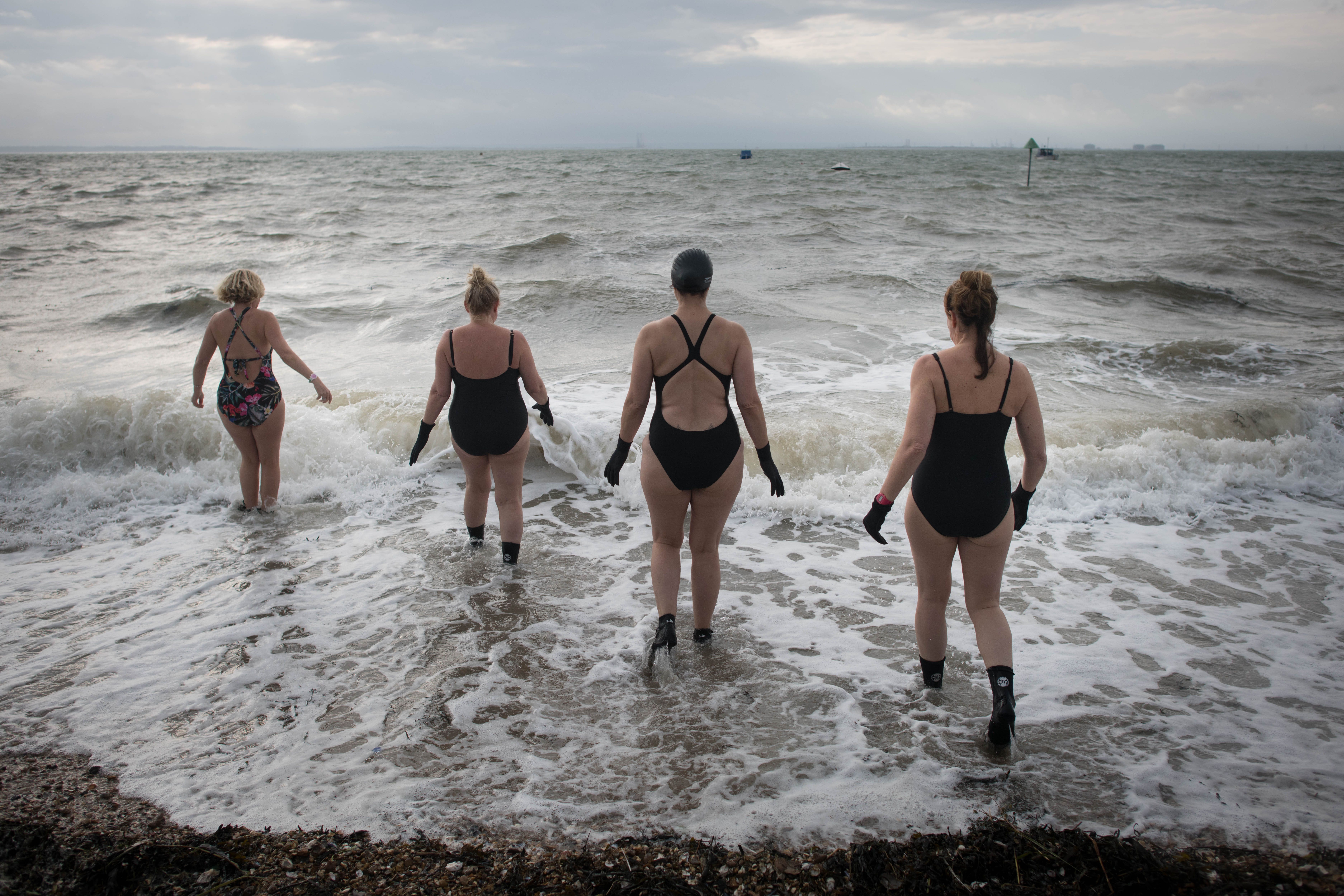Study to probe whether outdoor swimming can reduce symptoms of depression
There is emerging evidence that open water swimming can have a positive impact on mental health, according to experts.

Researchers are seeking hundreds of people to take part in the first large study into whether outdoor swimming can reduce symptoms of depression.
Open water bathing has been praised as a way to improve wellbeing in the last few years, with emerging evidence that it can have a positive impact on mental health, experts said.
The number of adults experiencing moderate to severe depression in the UK doubled to nearly one in five between March and June 2020 during the Covid-19 pandemic, compared to one in 10 before the crisis.
The research call comes after the first clinical trial into its benefits for adults with depression was completed last year.
Experts from the University of Portsmouth and Sussex Partnership NHS Foundation Trust worked with 87 people with mental health difficulties to see if they would sign up for the project and remain engaged until the end of the programme.
This is the first large trial of its kind that will tell us if outdoor swimming is helpful for people living with depression
Dr Heather Massey, who is co-leading the new study, said the initial trial results were “really promising”.
The University of Portsmouth senior lecturer said: “We reported reductions in symptoms of depression and anxiety in the outdoor swimming group compared with the control group, and there was a lower number of them seeking depression-specific therapy post-treatment and at follow-up.
“The use of antidepressants and sleeping tablets, on average, also reduced more.
“Our next task is to see if a full-scale randomised control trial produces similar results. If we can demonstrate outdoor swimming is a viable and cost-effective treatment for depression, it has the potential to be rolled out across the UK.”
The further study called Outside will be rolled out across 15 sites in England in a two-and-a-half year study aiming to explore if people with mild to moderate depression benefit from an outdoor swimming course.
Researchers will monitor whether the activity leads to a reduction in depressive symptoms and anxiety for up to 38 weeks following the trial.
They will also see if it improves mindfulness and is a safe and cost-effective treatment to run.
Richard Williams, from Worcestershire, was among those to take part in the first study at the Lenches lakes in Evesham. He suffered from depression and anxiety for years and in 2022 tried to take his own life.
“I was at a real low point in my life, and felt completely alone,” the 41-year-old said.
“After hitting rock bottom I decided to reach out to the Samaritans charity and eventually felt ready to go home and work on myself. I began therapy, and that’s how I found out about the cold water immersion study.”
He added: “It has completely changed my life. I’m swimming twice a week, in a cold tub every day and even signed up to an Ironman.
“So I’ve gone from a recovering alcoholic and recluse into firing on all cylinders now, and wanting to help others and spread the word.”
The research project will host swimming sessions across the country including Brighton, Maidstone, Sunderland, Windermere, Nottingham, Bristol, Manchester and Penzance.
The settings will be a mix of sea swimming, lakes and semi-heated outdoor pools.
Clara Strauss, research deputy director at Sussex Partnership, said: “This is the first large trial of its kind that will tell us if outdoor swimming is helpful for people living with depression.
“If it is, this could increase the range of options available to people as they find their path to recovery.”
Bookmark popover
Removed from bookmarks